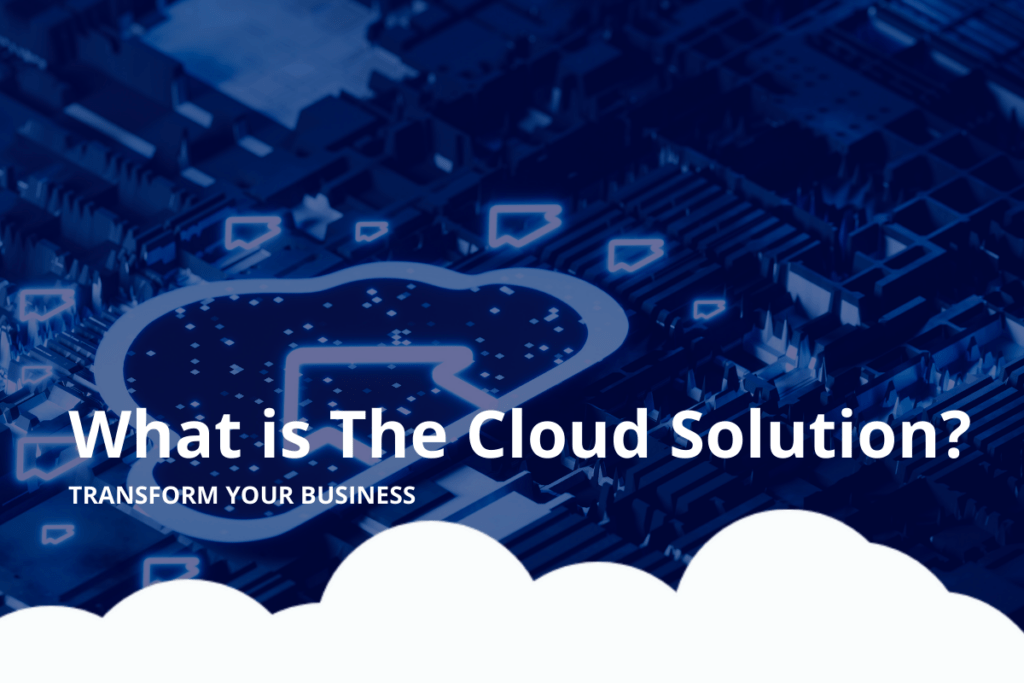Cloud computing is a model of computing in which scalable and elastic IT-enabled capabilities are delivered as a service using the internet. In other words, it allows users to access and use computing resources, such as servers, storage, and applications, over the internet on a pay-as-you-go basis.
What are the types of computing solutions?
There are three main types of cloud computing solutions: public, private, and hybrid.
- Public cloud solutions are owned and operated by third-party companies, such as Amazon Web Services (AWS), Microsoft Azure, and Google Cloud. These services are available to the general public and can be accessed over the internet. Public cloud solutions are typically the most cost-effective option, as users only pay for the resources they consume.
- Private cloud solutions are owned and operated by a single organization and are not available to the general public. They offer more control and security than public cloud solutions, as the organization has complete control over the infrastructure and can customize it to meet their specific needs. However, private cloud solutions are generally more expensive to set up and maintain, as the organization is responsible for all the costs associated with the infrastructure.
- Hybrid cloud solutions combine elements of both public and private clouds. They allow organizations to take advantage of the scalability and cost-effectiveness of public clouds while still retaining control and security of their own private cloud.

What is a private cloud?
A private cloud is a cloud computing environment that is used solely by a single organization. It is typically deployed within the organization’s own data center, or it may be hosted by a third-party provider but still dedicated to the organization’s use. Private clouds provide the organization with a high level of control and security over its computing resources, as well as the ability to customize the infrastructure and applications to meet its specific needs.
Private clouds can be implemented using a variety of technologies and architectures, including virtualization, containers, and infrastructure-as-a-service (IaaS). They can be used to host a wide range of applications and workloads, including business-critical systems, data analytics, and web-based applications.
One of the main benefits of private clouds is that they offer organizations a high degree of control and customization, as well as the ability to ensure that their data and applications are secure and compliant with relevant regulations. They also offer the scalability and flexibility of the cloud, allowing organizations to quickly and easily provision and deploy resources as needed.
What are the benefits of cloud computing?
One of the main benefits of cloud computing is that it allows organizations to offload the infrastructure, maintenance, and management of their IT systems to a third-party provider like DHI. This frees up resources and expertise that can be better utilized elsewhere, such as on business-critical projects and initiatives.
- Cost savings With cloud computing, you only pay for the resources you use, which is more cost-effective than buying and maintaining your own hardware and software.
- Scalability Cloud computing allows you to easily scale up or down as your needs change, so you don’t have to worry about over or under-provisioning resources.
- Reliability Cloud providers offer high uptime and availability for their services, which can be more reliable than on-premises systems.
- Security Cloud providers offer robust security measures to protect your data and applications.
- Flexibility Cloud computing allows you to access your applications and data from anywhere with an internet connection, giving you more flexibility to work from anywhere.
- Collaboration Cloud-based tools and services can make it easier for teams to collaborate and work together in real time.
- Innovation Cloud providers often offer new and updated features and services, which can help you stay up-to-date with the latest technologies.
Overall, cloud computing solutions provide businesses with a flexible and scalable way to access and use computing resources on a pay-as-you-go basis. By offloading the infrastructure, maintenance, and management of their IT systems to a third-party provider, organizations can free up resources and expertise to focus on business-critical projects and initiatives.
Let DHI transform your business with the cloud solution
Are you finding it increasingly difficult to keep up with the hardware and software demands of a physical data center and network? Then it’s time for DHI solutions. Let us move you to the Cloud. From providing the managed platform for business-critical applications to expanding your storage or disaster recovery capabilities to migrating your entire server infrastructure off-premise and creating a virtual workplace, DHI can be your means to make a transformational change in how you operate your business. Contact us today
